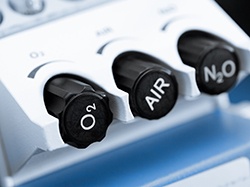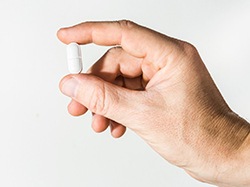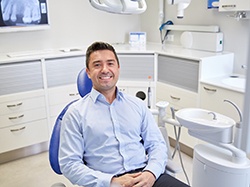Sedation Dentistry – Wellesley, MA
No More Dental Fear and Anxiety
Imagine undergoing a complex dental treatment like root canal therapy, an extraction, or oral surgery. When your treatment is complete, you have no recollection of the time it took, the pain, the noise, or the discomfort you were expecting. We are pleased to offer our patients the option of comfortable, safe, and effective sedation dentistry in our Wellesley, MA dental office. Patients who benefit from sedation dentistry are able to find freedom from dental fear and anxiety.
Why Choose Wellesley Dental Group for Sedation Dentistry?
- Multiple Types of Sedation Available
- Careful Monitoring for Patient Safety
- Comfortable, Non-Judgmental Atmosphere
Nitrous Oxide Sedation

Nitrous oxide, also known as laughing gas, is the most frequently used method for easing mild to moderate anxiety. It is administered through a mask that gets placed over a patient’s nose. We use a nearby machine to precisely control the amount of both nitrous oxide and oxygen that the patient inhales.
Nitrous oxide kicks in very quickly. Its effects also dissipate quite fast, so you should feel alert within minutes after your procedure. You should even be able to drive yourself home. This mild form of sedation is one of the most common and reliable methods for helping patients relax.
Oral Conscious Sedation

An extremely common technique for easing dental anxiety is oral sedation. It is highly effective and does not require the use of needles. You will be given a prescription pill, taken about an hour before your appointment, so that you are fully relaxed by the time you arrive at our dental office.
You may feel drowsy while under the influence of oral conscious sedation, but you should not slip into unconsciousness. After the effects of the medication wear off, you are unlikely to remember anything that happened during your appointment.
Oral conscious sedation is a popular choice for patients with moderate anxiety, as well as those who must undergo extensive dental procedures.
IV Sedation

In IV sedation, a sedative is administered intravenously, or directly into a vein. The sedation can be quickly modified to your state of consciousness and can be continued as long as necessary for the procedure. IV sedation has the potential to be one of the most powerful relaxation techniques, so we typically only recommend it if a patient suffers from extreme anxiety or has other special circumstances.
IV sedation is incredibly fast-acting, and its effects can linger for several hours after a procedure. You should be prepared to spend at least a day or so relaxing at home after your appointment.
Am I a Good Candidate for Sedation Dentistry?

Sedation dentistry is an excellent provision for individuals with dental anxiety. However, even if you are not afraid of oral procedures, you could still benefit from it. For example, we might recommend it for you if:
- You are not easily numbed by local anesthesia.
- You have a sensitive gag reflex.
- You require an extensive or complex procedure.
- You have a medical condition that makes it difficult for you to sit still for a long period of time.
Before we approve you for sedation, we will carefully consider all relevant risk factors so we can be reasonably sure that sedation is safe for you.
